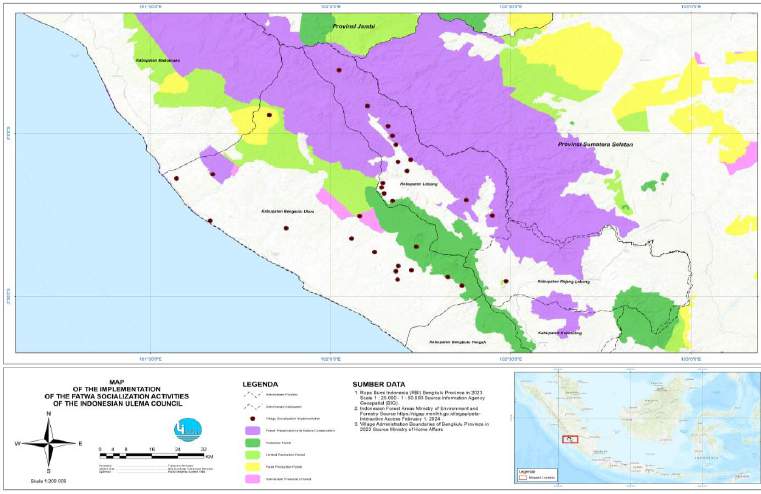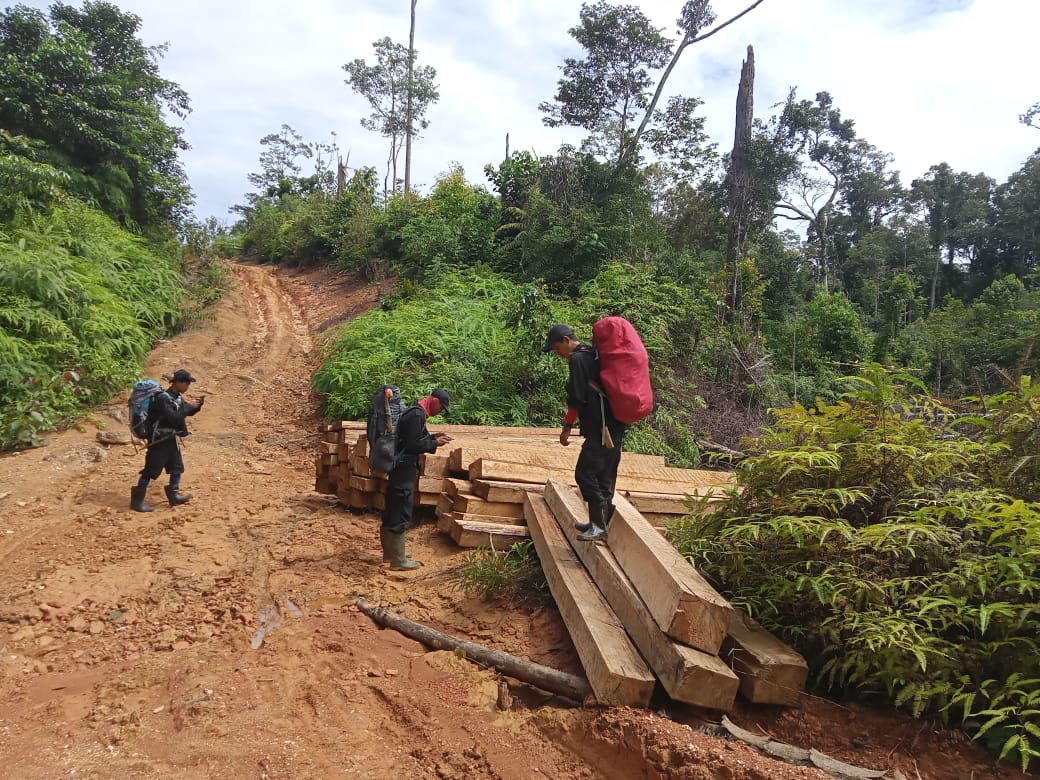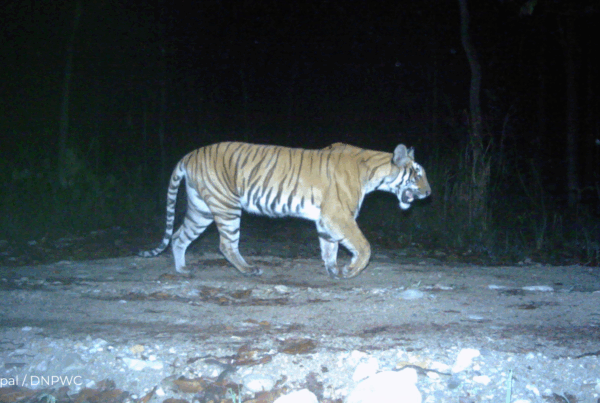- Since 2020, our implementing partners, Lingkar Inisiatif, have targeted illegal forest hunting using a religious approach.
- Fatwa MUI No. 04/2012, issued by the Indonesian Ulema Council, prohibits the hunting and trading of tigers and other endangered species, reinforcing Islamic principles of environmental stewardship.
- In 2023, 373 participants took part in Fatwa socialisation activities, 18 collaborative patrols were conducted covering 623 kilometres, and 15 ex-hunters were engaged through the guardianship scheme.

Pito Kung_Sumatran Tiger
Found only on the Indonesian island of Sumatra, these tigers are critically endangered, with fewer than 400 individuals remaining in the wild. The primary threats to their survival are habitat destruction, human-wildlife conflict, and poaching driven by the illegal wildlife trade. However, thanks to the extraordinary efforts of local heroes, there is hope for these magnificent big cats.
Protecting Sumatran tigers
Since 2020, our implementing partners, Lingkar Inisiatif, have developed a program targeting forest crime hunters and re-offenders using a religious approach. This program has resulted in 20 ex-hunters publicly renouncing hunting and handing over their hunting equipment to national park authorities.
Using religion in conservation
A fatwa is a legal opinion or decree issued by an Islamic scholar or a group of scholars on matters related to Islamic law (Sharia). Fatwas are significant in providing guidance to Muslims on religious, social, and personal issues, ensuring that their actions align with Islamic principles. While a fatwa is not legally binding, it carries substantial moral and religious weight within the Muslim community.
Fatwa MUI No. 04/2012, issued by the Indonesian Ulema Council (MUI), specifically addresses the prohibition of hunting and trading tigers and other endangered species. This fatwa reinforces the Islamic principle of environmental stewardship, urging Muslims to protect and preserve all forms of life.
In the North Sumatra Province, local religious and community leaders, along with our implementing partners, Lingkar Inisiatif, have successfully collaborated to disseminate this Fatwa, actively promoting it in key villages. In 2023 alone 373 participants took part in socialisation activities and outreach was also carried out in 5 mosques through Friday prayer sermons. These activities have historically led to a noticeable decline in illegal hunting in areas where this initiative has been implemented. These outreach activities also allow space for participants to provide information regarding conditions in their respective villages such as conflicts they’re facing with animals.

Map of implementation of socialization activities from the period 2019-2024
Patrolling and intelligence gathering
In 2023 the project team conducted 18 collaborative patrols over 83 days covering a total walking distance of 623 kilometres. During these patrols, no tiger snares (active or inactive) were found, but there were indications of poaching of protected wildlife at 10 locations, including 6 glue traps, 2 bird nets, and 2 nylon snares.
Additionally, the team also discovered 108 instances of illegal forest use by the community. These findings have been reported to the Kerinci Seblat National Park Authority by the Lingkar Inisiatif Indonesia Team for further law enforcement action.
Further investigation activities were also conducted by the project team, revealing that a hunting group has resumed poaching Sumatran tigers. This group includes re-offenders previously arrested for tiger skin trading. The findings have been reported and monitoring is ongoing. However, progress in law enforcement has been slow due to the group’s experience and secrecy.

Evidence of logging discovered while on patrol
Guardianship programme
The Guardianship Programme is a crucial component of the conservation efforts to protect the Sumatran tiger. By transforming hunters into conservation allies and providing them with alternative livelihoods, the programme not only reduces illegal hunting but also fosters a sustainable future for both the wildlife and the local communities.
In 2023, the Lingkar Team held face-to-face meetings with 15 ex-hunters to ensure they did not revert to illegal activities and to identify new active hunters for monitoring. During these meetings, ex-hunters reported economic hardships. To address this, the team, in collaboration with national park authorities, developed short-term empowerment programmes and sought long-term support for sustainable agricultural alternatives.

Patrolling Sumatra’s protected areas
The story of saving the Sumatran tiger is one of hope and resilience. It’s about ordinary people doing extraordinary things. Our local heroes are proof that with determination and collaboration, we can turn the tide for one of the world’s most magnificent creatures. Join us in this vital mission and be a part of this incredible journey to save the Sumatran tiger from extinction. Donate today!





